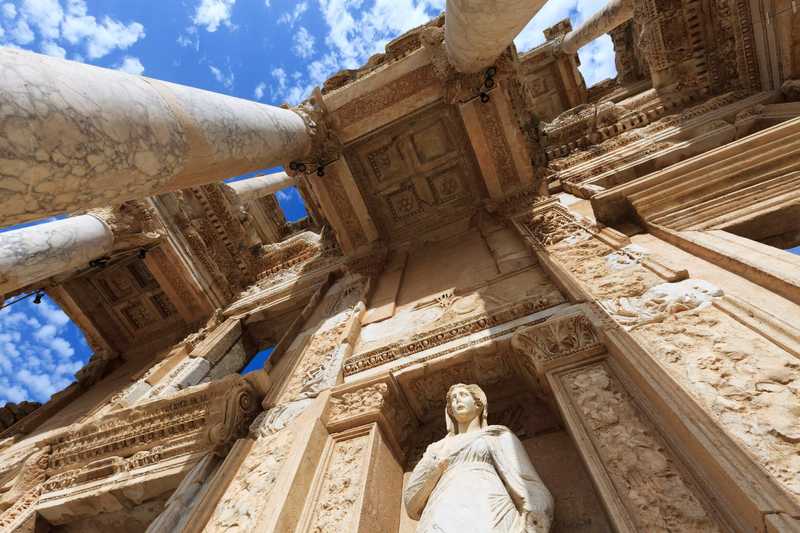Ephesus is arguably the most famous ancient city of the world and it attracts more than one million visitors annually from all over the world. But do you really know why is Ephesus so important? Do you really know what makes Ephesus unique and why you should visit it?
1. Its Condition
As Ephesus' golden age was coming to an end, the city grew smaller and was eventually abandoned in the 7th century AD. However, thanks to the amazing regeneration capabilities of the nature, the ruins were preserved perfectly until the discovery of the city in the 19th century. As a result of the invaluable academic and archeological efforts of the excavation teams, today, Ephesus is the best preserved ancient city of the world.
If you want to learn more about the Ephesus excavations, check this interview with Sabine Lædstatter.
2. Its Historical Importance
Ephesus was among the richest and the most important cities of the world, in both the Hellenic times and the golden age of the Roman Empire. Being one of the most essential port cities within the vast territory of the Roman Empire, it also played an invaluable role as a crossing point where land trade routes meet the vigorous naval trade routes of the mediterranean. In other words, Ephesus was one of the first examples of a modern-day "world cities", where east met the west.
3. Its Spiritual and Religious Importance
In addition to its "earthly" significance - or as a result of it -, Ephesus was also an important religious and spiritual center.
First of all, Ephesus was an important symbol of the Asia Minor's matriarchal mythology. As well as being a home for the cult of Cybele and then the final place of residence for the Virgin Mary, it was also the place where the Temple of Artemis, which was built as a tribute to Artemis, the prominent mother goddess of the Roman spiritual life.
Being one of the Seven Churches of Revelation, Ephesus was one of the places where Christianity blossomed, as a result of the remarkable efforts of St. Paul, who spent more than two years in the city.
4. Its Philosophical and Scientific Heritage
The province of Asia Minor consisted of twelve cities of the Ionian League and many other important cities, such as Miletus (where Thales lived), Samos (where Pythagoras lived) or Smyrna (where Homer lived) and was the center of the ancient intellectual evolution. Being the capital of this province, Ephesus served as a melting pot where many remarkable philosophical and scientific approaches blossomed and it was a home for many important intellectuals such as Heraclitus, who is considered as the father of philosophy.

